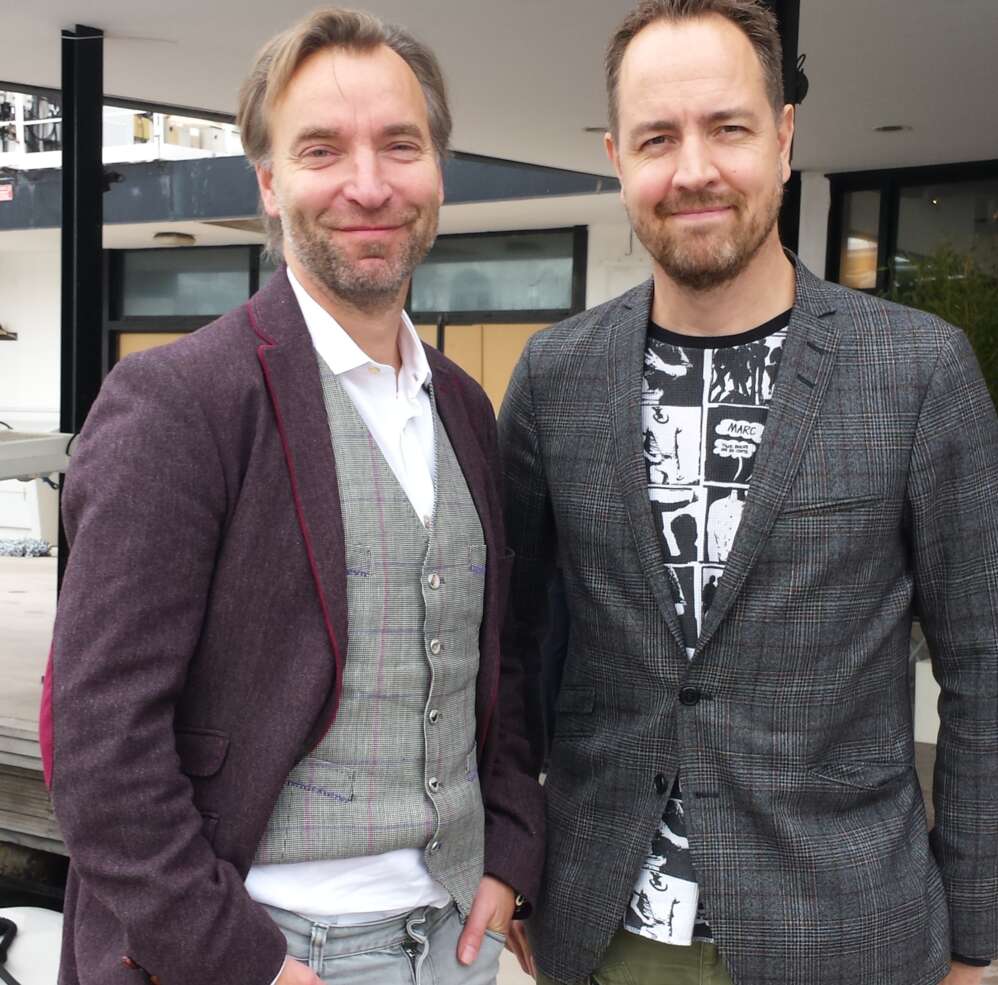WRITTEN BY: Annika Pham
Exclusive: Co-creators/directors Björn Stein and Måns Mårlind spoke to us at MIPCOM about Midnight Sun, the Swedish/French crime show set to air on Sunday on SVT1.

Exclusive: Co-creators/directors Björn Stein and Måns Mårlind spoke to us at MIPCOM about Midnight Sun, the Swedish/French crime show set to air on Sunday on SVT1.
At what point did you board Midnight Sun?
Björn Stein: Producers Henrik Jansson-Schweizer and Patrick Nebout had the wish to create a thriller set in Lapland in Northern Sweden and to set it up as a Swedish/French co-production, but their idea was rather loose.
Måns Mårlind: And with Midnight Sun we came up with the Sami element and Leila Bekhti as a female cop.
BS: Few people are familiar with Sami culture and traditions, even Swedes, which is quite shameful. At school we learn about Sami’s traditional joik singing and reindeer herding. But the community is discriminated against. They are called ‘Lapps’ which is very derogatory. I was rather ignorant myself before.
MM: Sofia Jannok [Swedish Sami singer/actress who plays a Sami shaman] was essential for us. I saw her at a concert and in between her songs she would speak about her people. That touched me and stuck in my mind. It was obvious for me to ask her to join the cast.
The series is a French-Swedish co-production. How was your collaboration with the French and Swedish partners?
MM: The difference was not only between the French and the Swedes, but also between public service [SVT] and pay TV [Canal+]. Swedes are more horizontal in their organisation, French more vertically and hierarchy-driven. There were lots of discussions.
How do you actually work together and split your writing/directing jobs?
MM: We do the storyline together and write everything down. Midnight Sun was written like an 85 page book. It’s full of details, with three acts, a cliffhanger for each act, and it also visualises the show. Thus it is very useful to everyone involved. I do the writing. But we share the directing and do it every second day.
You are both show-runners and directors of every episode…you obviously believe in retaining total control …
BS: We are two behind one vision and if there is anyone to crucify it’s the two of us!
MM: It’s very useful to be a director on top of a writer, because as a writer sometimes you fight for a specific scene that you feel is nice. As a director, we’re more brutal. Nice doesn’t cut it. We are very efficient in the writing stage and right to the end as we know what will be shot.
BS: Every scene is on trial. If we’re guilty with weak stuff-it’s out!
Going back to Midnight Sun, what are the main themes?
BS: I would stress two themes: one is origins, ethnic diversity, the other one is the past catching up on people.
MM: Origins is the strongest theme because that’s the core of the story that we wanted to tell, in reference to Europe today and people from different origins who are marginalised.
Tell me about the challenges of shooting in many different languages and locations…
MM: We shot in five languages [Swedish, French, English, Sami, Berber] but that went very smoothly, it was organically integrated into the storyline. The shooting was challenging in many ways. We shot in Paris, Kiruna, Lappish wilderness, a few days in Casablanca, Stockholm. Sometimes we had three teams shooting at the same time -Me and my team, Björn and his team, the second unit doing something else.
BS: The nightmare was also shooting around midsummer, with 24hour daylight. The shoot was four and a half months, above the polar circle, with snow in June!
Film vs TV? Which medium do you prefer to tell stories?
MM: I love the idea of telling a long story. However, as much as I love TV drama, you always go back to your old time film favourite (I’ve watched Lord of the Rings 10 times!) but you rarely do that with TV drama. I did return to Twin Peaks because it is so fantastic and I might return to True Detective, but that’s it!
Therefore it’s important to create quality TV. If you just do average TV for binging, you offer instant gratification, something superfluous that won’t pass the test of time.
Will your next move be in feature film or TV drama?
BS: We don’t know yet and we’re working on several fronts. We made two films in the US; one took two years to get made, and the other one three weeks. So we have different rods out: we fish with our projects and hope people will bite.
MM: Right now we have three rods, 2 TV and one film.
BS: We’re open to all options from the US and Europe. The problem with Hollywood is that they do huge franchise film on one side, then small indie movies, little in between. I hope the TV drama can put pressure on film to become more challenging in terms of stories.
Will there be a Midnight Sun season 2?
MM: Since we come from feature film we want to be able to tell a story that ends, kill the characters when we want.
BS: We can come up with a season 2 if we need to, but our intention was to tell one full story, with a beginning and an end.